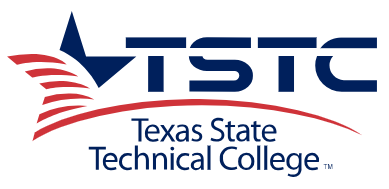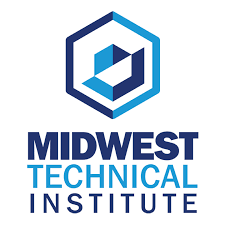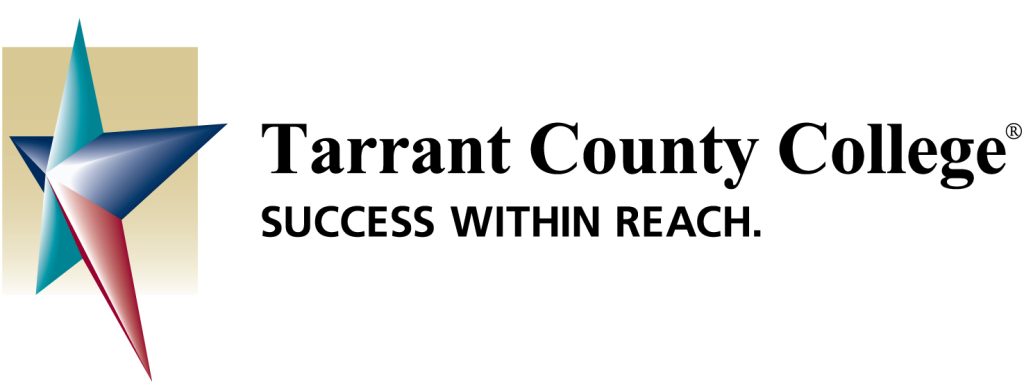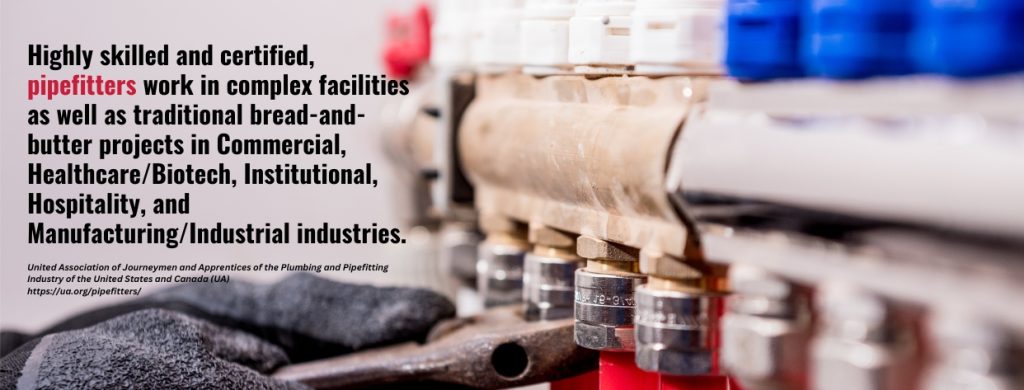A pipefitter trade job offers a promising path for those seeking stable employment, competitive wages, and the opportunity to work in diverse industries. With a strong demand for skilled pipefitters and the potential for career advancement, it provides a rewarding and financially sustainable career choice.
What is a Pipefitter?
A pipefitter is a skilled tradesperson specializes in the piping system installation, maintenance, and repair. They can gain trade jobs in various industries like energy, construction, and manufacturing.
Pipefitters have a variety of roles and responsibilities, including the following:
- Pipe Installation. They install pipes in buildings, industrial facilities, and pipelines, among other structures, and ensure that pipes are aligned correctly, fastened securely, and sealed properly to prevent leaks.
- Pipe Fabrication. They cut, bend, and shape pipes to fit specific requirements and dimensions using various tools and techniques.
- Blueprint Interpretation. They read and analyze construction blueprints and schematics to understand the layout and specifications of a piping system and to plan and execute installations accurately.
- Welding and Brazing. They connect pipes and fittings with their welding and brazing techniques in order to create durable connections.
- Repairs and Maintenance. They inspect, maintain and repair existing piping systems, as well as identify and address issues like leaks, corrosion or blockages.
- Safety Compliance. They adhere to safety regulations and protocols to minimize the risk of accidents and injuries.
- Work and Project Collaboration. They work closely with plumbers, electricians and HVAC technicians, among other construction professionals, to ensure that all systems are integrated correctly.
Data from the US Labor Statistics Bureau reveals that a steady demand and stable level of employment is expected for Plumbers, Pipefitters, and Steamfitters in the country for the period from 2022 to 2032, as the projected growth is as fast as the average for all jobs. As of May 2022, the median yearly pay for pipefitters and similar trade jobs is $60,090.
Despite the steady growth of employment for pipefitters and plumbers in the next decade, the industry is still expected to open 42,600 positions for these occupations each year to replace existing ones who will retire or change careers.
Methodology
If you’re looking for Pipefitter trade programs, certificates or vocational training, you’re in the right place! You won’t have to search further, as we compiled a list of online trade schools, universities and colleges offering Pipefitter career training programs.
Bear in mind, though, that fully online and hybrid training programs are rare, and thus, we’re including three traditional, onsite training programs in the list.
We meticulously picked the trade schools and learning institutions based on specific criteria that make them stand out in the field of Pipefitter training and education. These key features include the following:
- Offers rigorous online, hybrid, or on-campus coursework that provides students with a solid foundation in pipefitting skills and knowledge and encompasses essential topics like pipe installation techniques, welding, blueprint reading and safety protocols,
- Includes courses that will help students develop soft and transferable skills, such as leadership and decision-making abilities, that will make them valuable employees in their pipefitter roles and beyond,
- Hires expert instructors who bring real-world experience and academic qualifications in the field of pipe fitting, plumbing, or boiler making, and more,
- Provides opportunities for hands-on, experiential training through practical exercises, workshops and simulations, among other learning techniques and
- Upholds institutional and programmatic accreditation from organizations and agencies recognized by the US Department of Education and industry associations.
5 Top Online Pipefitter Trade Schools
Texas State Technical College

- Location: Waco, Texas
- Online Delivery Method: Hybrid
- Time It Takes to Complete: 12 months
- Completion Rate: undisclosed
- Types of Aid: Scholarships, Grants, Work-Study Programs, Parent and Student Loans
Texas State Technical College is offering the Plumbing & Pipefitting Technology – Tradesman – Certificate of Completion as one of its trade programs in its Waco campus with a hybrid learning format.
The curriculum is designed for students to experience intense hands-on learning where they spend a great deal of their training time in laboratory settings in order to develop their skills in plumbing, construction, fabrication and piping, among other related tasks.
This trade career training requires students to complete a total of 33 credits to obtain the Certificate of Completion recognition. The courses under this program include the following:
- Basic Blueprint Reading for Plumbers
- Piping Standards and Materials
- Plumbing Codes I
- Residential Construction Plumbing I
- Commercial Construction and Fixture Setting
- Field Measuring, Sketching, and Layout
- Plumbing Maintenance and Repair
- Backflow Prevention
- Advanced Pipe Practices
By the third and last semester, the students will need to complete a 6-credit Cooperative Education course, which is basically an internship that allows students to have practical work experience in a real-world, professional environment.
TSTC’s Waco campus also offers a 20-month, 60-credit Associate of Applied Science in Plumbing & Pipefitting Technology – Journeyman program in a hybrid format for students who prefer a more comprehensive education with their trade careers.
The institutional accreditation of Texas State Technical College is approved by the Southern Association for Colleges & Schools Commission on Colleges or SACSCOC.
Philadelphia Technician Training Institute

- Location: Philadelphia, Pennsylvania
- Online Delivery Method: Hybrid
- Time It Takes to Complete: 26 weeks
- Completion Rate: undisclosed
- Types of Aid: Institutional Financing Plan, Federal Loans, Private Education Loans, Scholarships
Philadelphia Technician Training Institute (PTTI) is a state-recognized trade school that offers a Steam, Sprinkler, and Pipe Fitting Technician Certification Program with a hybrid learning format. The program aims to help students reach a level of competency that is at par with the standard requirements of the industry.
Aside from equipping students with a comprehensive knowledge of the pipe, steam and sprinkler fitting processes and the technicalities of valve installation and pipe fabrication, this vocational training program also highlights personal and industrial safety practices, blueprint reading and engineering plans interpreting, and basic shop math, among others.
The curriculum also encompasses courses that help students build essential skills for their professional careers, including resume writing, written and verbal communication, personal finances budgeting, and interviewing techniques.
An externship is included in this technical training program, where students get to apply the skills they learned in real-world work settings while working with other employees.
PTTI holds a license from the Pennsylvania State Board of Private Licensed Schools to offer postsecondary entry-level career training. It also holds a regional accreditation approved by the Middle States Commission on Secondary Schools.
Midwest Technical Institute

- Location: MTI Campuses in Illinois and Missouri
- Delivery Method: Onsite
- Time It Takes to Complete: 10 months
- Completion Rate: undisclosed
- Types of Aid: Federal Grants and Loans
Midwest Technical Institute offers a Diploma in Welding & Pipefitting training program with evening and daytime classes available in its trade schools in Missouri and Illinois in order to provide students with greater flexibility in their schedules, especially for busy and working individuals.
This trade program requires trainees to complete 36 semester credits in order to obtain the Diploma. The 40-week curriculum focuses on providing students with hands-on learning experiences in a real weld shop environment. More specifically, students will spend approximately 30 weeks of practical training and 10 weeks learning about basic and advanced pipefitting procedures.
Students who complete this program will also earn MTI welding and pipefitting certifications that will boost their employability. These include certifications on various welding processes for various specifications of pipes and plates.
MTI also offers lifetime job placement assistance and career counseling to all qualified graduates of this Welding and Pipefitting training program.
As a trade school, MTI aims to provide students with the skills they need to enter the workforce immediately. In essence, the Pipefitting training, like any other training program at MIT, does not include general education courses.
The ACCSC-Accrediting Commission of Career Schools & Colleges granted Midwest Technical Institute’s institutional accreditation.
Tarrant County College

- Location: Fort Worth, Texas
- Delivery Method: Onsite
- Time It Takes to Complete: 1 year
- Completion Rate: undisclosed
- Types of Aid: Work-Study Programs, Scholarships, Grants, Loans
Tarrant County College offers two Certificate-level Pipefitter training programs in its South Campus in Fort Worth, Texas.
- The Level 1 Certificate in Basic Pipefitting is an 18-semester-hour program that provides the fundamentals of welding and pipefitting. It covers courses on equipment and safety, industrial mathematics, introduction to welding, basic blueprint reading and a capstone course.
- The Level 1 Certificate in Advanced Pipefitting is a 20-semester-hour program that covers piping standards and materials as well as pipe fabrication and installation. The curriculum also includes a capstone course focusing on advanced pipefitting specifications, installation and standards.
SACSCOC-Southern Association of Colleges & Schools Commission on Colleges has approved the institutional accreditation of Tarrant County College to award Associate-level degrees as its highest-level award.
Jones College

- Location: Leakesville, Mississippi
- Delivery Method: Onsite
- Time It Takes to Complete: two to three semesters
- Completion Rate: undisclosed
- Types of Aid: FAFSA, Federal Supplemental Educational Opportunity Grant (FSEOG), Student Loans, Federal Work Study, State Financial Aid, Scholarships
Jones County Junior College (Jones College) is offering two certificate programs under its Pipefitter training programs, which are designed to prepare students for a wide range of entry-level roles in the industry. These are traditional, onsite training programs available at the institution’s first satellite campus, Greene County Center in Leakesville, MS.
The Career Certificate in Pipefitting is a two-semester program that requires students to complete 30 hours of required program courses to obtain the Career Certificate. The courses include:
- NCCER Core
- Principles of Pipefitting Math
- Pipefitting Tools and Equipment
- Oxyfuel Cutting and Brazing
- Ladders and Scaffolding
- Advanced Piping Math
- Fiberglass and Plastic Pipe
- Identifying Valves, Flanges, and Gaskets
- Advanced Pipe Drawing (Intermediate and Advanced)
- Routing Trimming and Testing Piping System
On the other hand, the Technical Certificate in Pipefitting is a three-semester program that requires students to complete 45 hours of program courses to receive the Technical Certificate.
This program covers all the courses offered under the Career Certificate program, with additional courses offered in the Summer Semester, including:
- Pipe Installation with Hangers and Supports
- In-line Specialties and Standards and Specifications
- Stress Relief and Alignment
- Special Piping
- Fundamentals of Leadership
The two Certificate training programs also require students to complete 2 hours of a college orientation course.
Students are free to consult the school’s academic advisor for additional and replacement courses based on their career plans or university/college transfer requirements.
The curriculum of this program is crafted based on the goals and competencies set by the National Center for Construction Education and Research (NCCER) as well as on applicable local, state, and national codes.
The SACSCOC has endorsed the institutional accreditation of Jones College.

Frequently Asked Questions about Online Pipefitter Trade Schools
Are online and hybrid pipefitting programs accredited and recognized by employers?
Yes, they are. But make sure always to verify the accreditation status of the program and the trade schools offering them to ensure high-quality training that is at par with industry standards. Accreditation is crucial for ensuring the quality and recognition of your pipefitting education.
Institutional or regional accreditation from organizations recognized by the country’s Education Department and its agencies means that the institution offering the trade career training program has maintained high-quality educational standards. It also signifies that the institution is authorized to award a Diploma or Certificate.
A Pipefitter trade career training program recognized by local, state, or national industry organizations is also a perfect indication that employers will recognize your credentials.
Lastly, consider Pipefitter training programs with a curriculum that meets industrial standards, such as the National Center for Construction Education and Research.
How do I access hands-on training in an online or hybrid pipefitting program?
Firstly, take note that fully online or hybrid Pipefitter training programs are rare in the country. In hybrid formats, students are generally required to attend in-person labs or workshops at campus where the necessary simulation facilities and equipment are available.
A university, college or online trade school may also arrange partnerships with local training centers, apprenticeship programs or affiliated employers for the hands-on training component of the curriculum.
It’s crucial to verify the availability of hands-on training options and facilities when choosing a Pipefitting training program from hybrid or online trade schools.
Can I work while pursuing a pipefitting training program?
Yes, you can. Many pipefitting programs, whether in online, hybrid, or on-campus learning formats, are designed to accommodate students who are working or have other commitments. The flexible nature of the coursework allows you to balance your education with part-time or full-time employment.
In the case of onsite or on-campus programs, some schools even offer night classes.
Whatever the learning format offered by the program you’re enrolled in, bear in mind that you’ll have to manage your time effectively to meet both academic and work obligations successfully.
For more valuable information, see the following:

